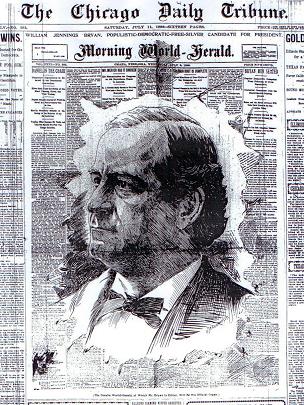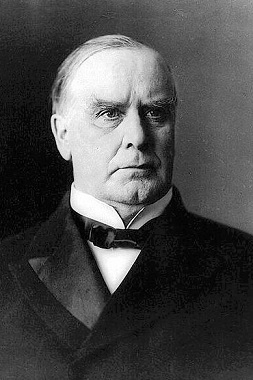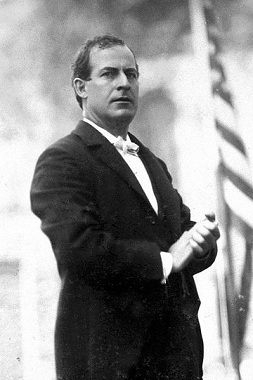Can one speech make a man President?
By John R. Schmidt

Can one speech make a man President?
By John R. SchmidtOn July 9, 1896 a 36-year-old newspaper editor gave a speech before the Democratic National Convention in Chicago. The next day he became the party’s candidate for President of the United States.
The economy was in bad shape in 1896. The country was arguing about how to solve the problem. Put simply, it was about Gold vs. Silver.

The Gold group wanted each dollar in paper money backed by a dollar’s worth of gold. They thought America needed a stable currency to bring back prosperity.
The Silver group wanted paper money backed by both silver and gold. That would put more money in circulation, and lead to inflation. But in the short term, the economy might rebound.
The Republicans nominated Governor William McKinley of Ohio for president. He was a Gold man. When the Democrats gathered in Chicago for their convention, none of their possible candidates seemed very exciting.

They met at the original Chicago Coliseum, at 63rd and Stony Island. On the second day, July 9th, various delegates gave speeches about the party platform. William Jennings Bryan was one of the Silver speakers. He had served in Congress, and was now editor of the Omaha World-Herald.
Bryan was young, handsome, and dynamic. He had a deep, booming voice that carried to all corners of the hall–which was important, since microphones hadn’t been invented yet. And he knew how to give a speech.
Maybe it wasn’t what he said, but how he said it. His Silver arguments were nothing new. Yet two minutes into his oration, the delegates were interrupting him with applause. As he went on, the applause came more often, and grew louder.
Then Bryan concluded, with imagery from the Bible–”You shall not press down upon the brow of labor this Crown of Thorns! You shall not crucify mankind upon a Cross of Gold!”

The convention had become a revival meeting, and the delegates went wild. They stood on chairs, shouting themselves hoarse. They threw hats, handkerchiefs, umbrellas, and anything else handy, into the air. The party had found the man to lead it into battle.
One speech had done it.
Bryan was barely a year older than the age requirement for president. He was the youngest person ever nominated by a major party–and still is. He waged a vigorous campaign through all parts of the country.
In the end, the voters chose colorless competence over charisma. McKinley was elected.

